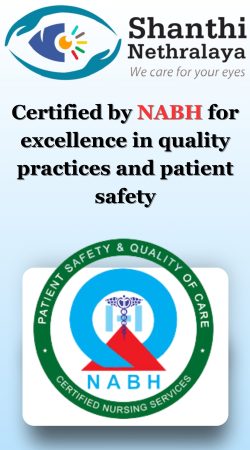Herpes Zoster Ophthalmicus (HZO), also known as shingles in the eye, is a viral infection caused by the reactivation of the varicella-zoster virus—the same virus responsible for chickenpox. When the virus reactivates, it can affect the skin around the eye and, in some cases, the eye itself. This condition can cause significant discomfort and, if not treated, lead to complications like vision loss.
HZO is caused by the varicella-zoster virus, which lies dormant in the nerve cells after someone has recovered from chickenpox. Years or even decades later, the virus can reactivate due to a weakened immune system, stress, or aging, causing shingles. When the ophthalmic division of the trigeminal nerve (the nerve that controls sensation in the face) is affected, it leads to Herpes Zoster Ophthalmicus.

While anyone who has had chickenpox can develop HZO, certain individuals are at a higher risk of experiencing this viral reactivation. Here are some of the factors that increase susceptibility
HZO is usually diagnosed based on clinical signs and symptoms. An ophthalmologist will look for the characteristic rash and may perform an eye examination to check for any involvement of the cornea, retina, or optic nerve.
Acyclovir, Valacyclovir, or Famciclovir are commonly prescribed antiviral drugs that help shorten the duration of the infection and lessen its severity. These medications are most effective when started within 72 hours of the onset of symptoms.
Eye drops or oral corticosteroids may be prescribed to reduce inflammation in the eye. However, they should only be used under the guidance of an eye doctor.
Over-the-counter pain medications or prescription painkillers may be used to alleviate discomfort during the active phase of the infection.
Artificial tears can help with dryness and discomfort caused by the inflammation of the eye.
If long-term nerve pain persists after the rash heals, your doctor may prescribe pain medications, nerve blocks, or other therapies to manage the pain.
One of the most effective ways to prevent HZO is through vaccination. The shingles vaccine (Zoster vaccine) is recommended for adults over 50, as it can significantly reduce the risk of developing shingles and HZO. If you’ve had chickenpox or shingles before, getting vaccinated can still lower your chances of a recurrence.
At Shanthi Nethralaya, we offer personalized care for patients with Herpes Zoster Ophthalmicus. Our well-trained optometrists and ophthalmologists provide thorough eye examinations, ensuring early detection and treatment of this condition. With a commitment to using the latest technology and treatment options, our experienced team helps manage the infection and prevent long-term complications like vision loss.
One Patient at a Time : At Shanthi Nethralaya, every patient is given individual attention during their consultation, ensuring that all your concerns are addressed.

WhatsApp us